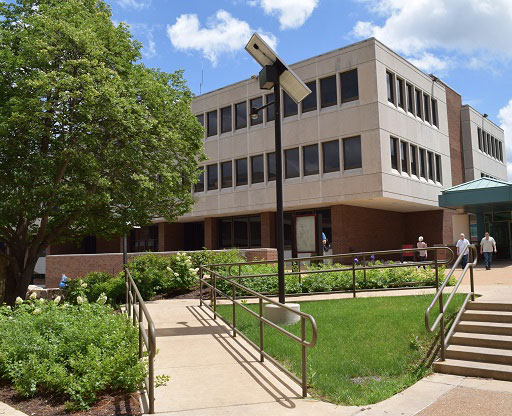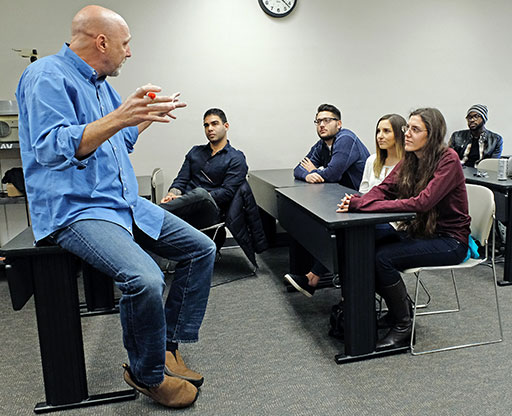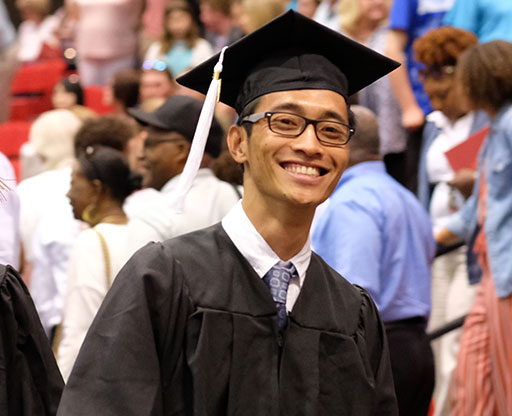Be part of the solution with a degree in criminology and criminal justice.
Criminology and criminal justice studies the reasons people engage in crime, as well as the systems built to deal with criminal offending. Studying both criminal offending and responses to it will prepare you for work in various jobs in the realm of crime and justice. Recent events have brought calls for improvements in how our nation deals with crime and justice issues. Now is a great time to be part of the response to these calls.
Acclerated Program
The accelerated program is a unique dual degree program that provides a pathway for students to earn both a bachelor’s and a master’s degree in criminology and criminal justice with fewer total credit hours than would be required to complete each degree independently. Once all requirements have been met, students will be awarded both a BS and an MS and are able to enter the job market with a competitive edge.
Program type:
Major, BS
Format:
On-Campus, 100% Online
Take the next step
Request more information below:

Bachelor of Science in -
Criminology and Criminal Justice
The BS in Criminology and Criminal Justice is an interdisciplinary program incorporating knowledge from criminology, social science, law, public administration and corrections, and provides an understanding of the assumptions, values and processes of the justice system. Core coursework includes theories of crime, criminal law, criminal justice policy and research/statistical methods in criminology and criminal justice. Students also select courses in policing, courts or corrections and more.
Credit may be allowed for individuals certified as law enforcement officers in Missouri and Illinois, as well as certified Federal law enforcement officers/agents who successfully completed police academy training. Consideration may be given to individuals certified as law enforcement officers/agents from other states.
Outcomes and Career Outlook
Upon completion of the program, graduates will demonstrate critical thinking in criminology and criminal justice, law, theory, research methods, statistics and criminal justice policy; demonstrate an understanding of policing, courts and corrections; analyze the role that class, race, gender and culture play in crime and criminal justice; evaluate and report research findings and data; formulate, design, assess and evaluate research questions; and apply theory into practice in the public and private sectors.
Employment of criminal justice professionals is projected to grow up to 13% to 2032, with a median annual salary of $64,940, according to wage and employment data from the U.S. Bureau of Labor Statistics.
64,940
13
Career Opportunities
- Logistics Manager
- Career Counselor
- Corrections Officer
- Court Reporter
- Criminal Profiler
- Criminologist
- Deputy Sheriff
- Forensic Science Technician
- Loss & Prevention Specialist
- Police Officer
- Private Investigator
- Probation & Parole Officer
- U.S. Marshall
Plan of study
All majors must meet the general education requirements of the university in addition to completing degree-specific curriculum requirements.
Review Full Degree Requirements Review Sample Four-Year Plan
Non-Missouri Residents: Prospective students are responsible for reviewing the UMSL state authorizations page to see if this program is offered in their state throughout their program and to review the licensure or certification requirements for the state in which they reside.
Student organizations
Make new friends and learn new skills by joining one of our Recognized Student Organizations. Here are several opportunities you may be interested in as a criminology and criminal justice major:
- Criminology and Criminal Justice Undergraduate Student Association (CCJUSA)
- Student Government Association
- Students of the University of Missouri
Honors College
The UMSL Honors College is a certificate program that can be paired with any major without adding extra classes or extending time to graduate. Classes in the Honors College are seminar-style, meaning that they are based in reading, writing, discussion, and critical thinking. This unique class format fosters an intellectual climate centered around democracy, civility and academic excellence.
Undergraduate research
We encourage and support students as they engage in exciting activities in and outside of the classroom that enrich their academic and professional understanding of their chosen area of study. All majors are encouraged to participate in Undergraduate Research and Scholarship to produce discipline-specific intellectual or creative innovations to their field.








